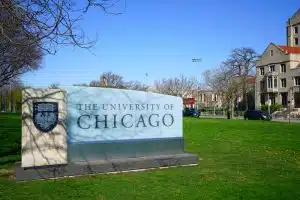Summer AP Courses
As summer approaches, many high school students are looking for ways to utilize this time effectively while also having a bit of summer fun. One excellent alternative is to enroll in advanced placement, or AP, courses. In this article, we aim to explore the impressive benefits, selection process, preparation techniques, and strategies for maximizing your AP course experience during the summer break.
The Importance of AP Courses
AP courses play a crucial role in a student’s academic journey. They not only broaden students’ knowledge base but also help develop essential skills for succeeding in future higher education.
When students enroll in AP courses, they are embarking on a challenging academic adventure that goes beyond the traditional high school curriculum. These courses offer a unique opportunity to delve deeper into subjects that interest students the most, providing a more comprehensive and detailed perspective.
By taking AP courses, students are exposed to college-level material while still in high school. This exposure not only prepares them for the rigor of higher education but also ignites their curiosity and encourages them to think critically and creatively. The in-depth knowledge gained from AP courses fosters a deep understanding of the subject matter, allowing students to make connections and see the bigger picture.
The Benefits of AP Courses
AP courses offer in-depth knowledge and college-level experience while still being in high school. They illuminate a much more detailed perspective on subjects that interest students the most, fostering a deep understanding that sparks curiosity and encourages creativity.
Students who successfully pass AP courses generally have an advantage over their peers. These courses engender a strong grasp of the subject, making transitions to higher-level college classes smoother. Additionally, achieving a good score on AP exams could lead to college credit, potentially reducing the total number of credits required for graduation.
Moreover, AP courses provide students with valuable skills that are highly sought after in college and beyond. These courses emphasize critical thinking, problem-solving, and effective communication, equipping students with the tools they need to excel in any academic or professional setting.
Furthermore, the rigorous nature of AP courses prepares students for the demands of college life. They learn how to manage their time effectively, handle a heavy workload, and develop strong study habits. These skills not only contribute to academic success but also lay a solid foundation for future endeavors.
How AP Courses Boost Your College Application
AP courses significantly strengthen a student’s college application. Colleges prefer applicants who have demonstrated their ability to handle a rigorous curriculum. By challenging themselves and succeeding in AP courses, students show a good work ethic and a level of preparation that rises above the typical high school curriculum.
Additionally, AP courses allow students to showcase their passion and dedication to a particular subject. By choosing to take advanced courses in areas they are interested in, students demonstrate their commitment to academic excellence and their desire to pursue knowledge beyond the basic requirements.
Furthermore, these courses allow students to explore potential college majors in high school, which can provide clarity when setting academic and career goals. Essentially, they demonstrate to college admissions officers that students are committed and ready for the prospect of college-level work.
Moreover, the successful completion of AP courses and the corresponding exams can result in college credit. This not only saves students time and money but also allows them to delve deeper into their chosen field of study during their college years.
Ultimately, AP courses offer a multitude of benefits to students. They provide a challenging and enriching academic experience, develop essential skills, and enhance college applications. By taking AP courses, students are setting themselves up for success in higher education and beyond.
Choosing the Right AP Courses for Your Summer
With a vast array of AP courses available, making an informed choice proves essential to ensuring a fulfilling and productive summer. The decision of which AP courses to take can have a significant impact on a student’s academic journey and future career prospects. Therefore, it is crucial to carefully consider various factors when selecting the most suitable AP courses.
Assessing Your Academic Strengths and Interests
AP courses are challenging and involve much more self-study compared to regular high school subjects. Thus, students are advised to choose subjects wherein they naturally excel or in which they hold a significant interest. This approach tends to make studying easier and significantly more enjoyable, enabling students to persevere through challenging material.
For example, if a student has always excelled in mathematics and finds joy in solving complex problems, they might consider taking AP Calculus or AP Statistics. On the other hand, if a student has a passion for history and enjoys analyzing historical events and their impact on society, they might opt for AP World History or AP U.S. History.
By aligning their course selection with their academic strengths and interests, students can maximize their potential for success and satisfaction in their AP courses.
Aligning AP Courses with Your Future Career Goals
AP courses can also be strategically chosen based on a student’s projected college major or career path. For instance, a student interested in pursuing a future in engineering might consider AP Physics or AP Calculus, as these courses provide a strong foundation in the mathematical and scientific principles essential for engineering disciplines.
Similarly, a student aspiring to become a writer or journalist might find AP English Literature and Composition or AP Language and Composition invaluable in honing their critical reading, writing, and analytical skills.
It is worth noting that while some AP courses may directly align with specific career paths, many colleges and universities also value a well-rounded education. Therefore, students are encouraged to explore a variety of subjects that pique their interest, even if they may not seem directly related to their intended career.
Student guidance counselors often provide valuable advice about which AP courses might prove most beneficial for individual students based on their career interests. They can offer insights into the rigor and workload of different courses, as well as provide information on the potential college credits that can be earned through successful completion of AP exams.
Ultimately, the choice of AP courses should be a thoughtful and deliberate one, considering both academic strengths and future aspirations. By selecting courses that align with their interests and goals, students can embark on a summer filled with intellectual growth, personal development, and exciting opportunities.
Preparing for AP Courses
Stepping into an AP course without adequate preparation might be overwhelming. Implementing a few tactics early can pave the way for a smoother journey.
When it comes to preparing for summer AP courses, there are several strategies that students can employ to set themselves up for success. One of the most important things to remember is to treat AP courses as they would a college course. This means keeping pace with reading assignments, reviewing material regularly, and seeking assistance when they encounter challenging concepts. By adopting a proactive approach to their studies, students can ensure that they are fully prepared for the rigors of an AP course.
Furthermore, students are encouraged to form study groups with their classmates. Collaborative learning can deepen understanding and create a supportive academic community. By working together, students can share insights, clarify doubts, and reinforce their knowledge. Study groups also provide an opportunity for students to learn from their peers and gain different perspectives on the course material.
In addition to study groups, practice tests are another excellent resource for AP course preparation. They are an effective way to familiarize oneself with the exam format and to assess areas requiring further study. Practice tests not only help students become more comfortable with the types of questions they will encounter on the AP exam, but they also serve as a valuable tool for self-assessment. By identifying areas of weakness through practice tests, students can focus their efforts on improving those specific areas.
Balancing AP Coursework with Summer Activities
Given that it’s summer, students should also ensure they continue engaging in other activities they enjoy. Maintaining balance is key; all academic work and no fun can create undue stress.
While it is important to dedicate time to AP coursework, it is equally important to find a balance between academic responsibilities and personal interests. Students should make a conscious effort to schedule appropriate study times while leaving room for relaxation and recreational activities. Engaging in activities they enjoy can help students recharge and maintain a healthy mindset, which in turn fosters a more productive learning environment.
Moreover, participating in summer activities can actually enhance a student’s overall academic performance. For example, engaging in sports or physical activities can improve focus and concentration, while artistic pursuits can stimulate creativity and critical thinking skills. By incorporating a variety of activities into their summer routine, students can develop a well-rounded skill set that will benefit them not only in their AP courses but also in their future endeavors.
Making the Most of Your AP Course Experience
The AP course journey presents numerous opportunities for learning and growth if effectively navigated. It is a chance for students to challenge themselves academically and prepare for the rigor of college-level coursework. However, simply enrolling in an AP course is not enough; students must actively engage in their studies and utilize the available resources to maximize their learning experience.
Engaging Fully in Your AP Course
Active involvement in class discussions and assignments can enhance comprehension and retention of coursework. When students actively participate in discussions, they are exposed to different perspectives and ideas, which can broaden their understanding of the subject matter. Additionally, engaging in assignments allows students to apply what they have learned and reinforce their knowledge.
Online classes, particularly, require a proactive mindset as they typically involve more independent study and fewer opportunities for in-person interaction. In these virtual environments, students must take the initiative to reach out to their classmates and instructors, ask questions, and seek clarification when needed. By actively engaging in their AP course, students can develop critical thinking skills, improve their communication abilities, and become more confident in their academic pursuits.
Utilizing AP Course Resources for Maximum Benefit
The resources provided in an AP course are often comparable to those offered in college courses. These resources are designed to support students’ learning and help them succeed in their AP exams. It is crucial for students to take full advantage of these resources to supplement their understanding of the content.
Resources can include textbooks, online course materials, video tutorials, annotated illustrations, past papers, and sample questions. Textbooks provide comprehensive coverage of the subject matter and can serve as a valuable reference throughout the course. Online course materials, such as lecture notes and supplementary readings, offer additional explanations and examples to reinforce key concepts.
Video tutorials are particularly helpful for visual learners, as they provide step-by-step explanations and demonstrations of complex topics. Annotated illustrations, on the other hand, can help students visualize abstract concepts and make connections between different ideas. Past papers and sample questions allow students to practice applying their knowledge and familiarize themselves with the format and style of the AP exam.
By leveraging these tools, students can deepen their understanding of the content, reinforce their learning, and improve their performance in the AP exam. It is important for students to explore and utilize all available resources, as each resource offers a unique perspective and can contribute to a well-rounded understanding of the subject matter.
Reflecting on Your AP Course Journey
An important part of the learning process is retrospection – taking a hard look at how far you’ve come since your first day and making plans for your future endeavors.
Evaluating Your AP Course Performance
By analyzing their study habits, examination results, and overall engagement with the course, students can determine what techniques work best and which areas require improvement. This analysis can inform future study strategies and motivate continued learning.
Planning Your Next Steps After AP Courses
Having completed AP Courses, students have a solid foundation in their chosen fields. The next steps might include preparing for college, undertaking internships, or pursuing other advanced courses related to their preferred career paths.
Maximizing your summer with AP courses can bestow multifold benefits – academic enhancement, college readiness, self-discipline, and vital insights into potential future career paths. It’s an opportunity to learn, grow, and prepare for the future.
How AdmissionSight Can Help You with College Admissions
AdmissionSight is a college consulting firm that provides personalized assistance to students throughout the college admissions process. Here are some ways that AdmissionSight can help you:
Admissions strategy: AdmissionSight can help you develop a strategic plan for your college application process. Our professional consultants can assist with identifying schools that are a good fit for your academic, extracurricular, and personal goals and help you plan and prioritize your application strategy.
Application review: AdmissionSight can review your application and provide feedback on how to improve it. We can offer suggestions on making your application stand out and highlighting your strengths and unique qualities.
Essay coaching: AdmissionSight can help you craft compelling essays that showcase your personality, goals, and achievements. We can guide you through the essay writing process and provide feedback on your drafts to help you refine your writing.
Interview preparation: AdmissionSight can provide interview coaching to help you feel confident and prepared for college interviews. Our experts can offer tips on how to present yourself professionally and how to answer common interview questions.
Extracurricular planning: AdmissionSight can help you plan and develop your extracurricular activities to make them more impactful and meaningful. We can suggest activities that align with your interests and goals and provide guidance on demonstrating your leadership and initiative.
Overall, AdmissionSight can provide valuable guidance and support throughout the college admissions process to help you maximize your chances of getting accepted into the college of your choice.
With a high success rate of over 75%, we have built a strong network in the past decade. Book an initial consultation today, free of charge!








































